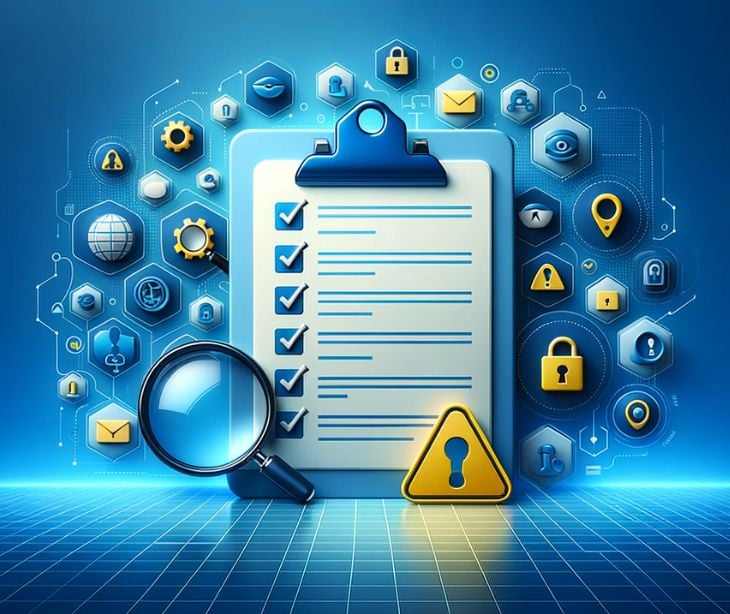
In healthcare settings, protecting patient data is of utmost importance. With the increasing popularity of Bring Your Own Device (BYOD) policies in healthcare organizations, balancing convenience and security has become challenging.
Related: How to send HIPAA compliant emails
What is BYOD?
BYOD, or Bring Your Own Device, is a policy that allows employees to use their personal devices, such as smartphones, tablets, and laptops, for work purposes. This approach offers employees flexibility and convenience, enabling them to access work-related data and applications from their preferred devices.
BYOD has become increasingly popular in various industries, including healthcare, due to its potential to improve efficiency, reduce costs, and enhance employee satisfaction.
BYOD benefits and risks
BYOD policies can significantly improve convenience, productivity, and cost-efficiency in healthcare settings. By allowing staff to use their personal devices, healthcare professionals can quickly access patient information, communicate with colleagues, and perform various tasks. This flexibility often leads to reduced overhead costs and improved patient care.
However, there are risks associated with BYOD in healthcare settings. Data breaches and non-compliance penalties can result from insecure devices or unauthorized access. Lost or stolen devices may contain sensitive patient information, posing a risk to patient privacy. Additionally, personal devices are susceptible to malware and cyberattacks, which can compromise patient data and healthcare systems.
BYOD policy best practices
Develop a comprehensive BYOD policy
To ensure the security of patient data, healthcare organizations must establish a clear and comprehensive BYOD policy. This policy should define the roles and responsibilities of employees, specify the types of devices and applications allowed, and include a process for registering and managing devices. Key clauses to address in the BYOD policy may include:
- Device registration and approval: Outline the process for registering personal devices with the organization, and specify the criteria for device approval based on device type, operating system, and security features.
- Data access restrictions: Clearly define which patient data and applications can be accessed on personal devices, and establish procedures for granting and revoking access privileges.
- Device disposal or decommissioning: Establish guidelines for securely disposing of or decommissioning personal devices when they are no longer in use or when an employee leaves the organization.
Implement strong security measures
Healthcare organizations must enforce robust security measures to protect patient information on personal devices. Critical security measures include:
- Encryption: Require encryption for data storage and transmission to protect sensitive patient data from unauthorized access. This may involve using HIPAA compliant email solutions, encrypted messaging apps, and encrypted storage options.
- Authentication: Mandate strong authentication measures, such as multi-factor authentication (MFA) or biometrics, to prevent unauthorized access to patient data. MFA may include a combination of passwords, security tokens, or biometric identifiers like fingerprints or facial recognition.
- Mobile Device Management (MDM) software: Utilize MDM software to remotely manage and secure personal devices. MDM solutions allow IT administrators to enforce security policies, monitor device usage, and remotely wipe data from lost or stolen devices.
- Provide ongoing employee training and awareness: To maintain a secure environment, healthcare organizations must prioritize employee education on HIPAA regulations and BYOD policies. Promoting a security-conscious culture and conducting regular security audits and assessments will help ensure compliance and protect sensitive information.
The balance between convenience and security
- Involving all stakeholders in the decision-making process, such as IT, administration, and clinical staff, will help ensure a well-rounded approach to BYOD implementation.
- Continuous monitoring and evaluation of the BYOD policy will allow healthcare organizations to address emerging security threats or compliance issues.
- Staying up-to-date with evolving technology and security threats is essential to maintaining a secure BYOD environment.
Balancing convenience and security in healthcare settings will protect patient data and ensure compliance with HIPAA regulations. By developing a comprehensive BYOD policy, implementing strong security measures, and providing ongoing employee training, healthcare organizations can adopt a secure BYOD policy without compromising patient privacy.
Subscribe to Paubox Weekly
Every Friday we'll bring you the most important news from Paubox. Our aim is to make you smarter, faster.

 Dean Levitt
Dean Levitt



